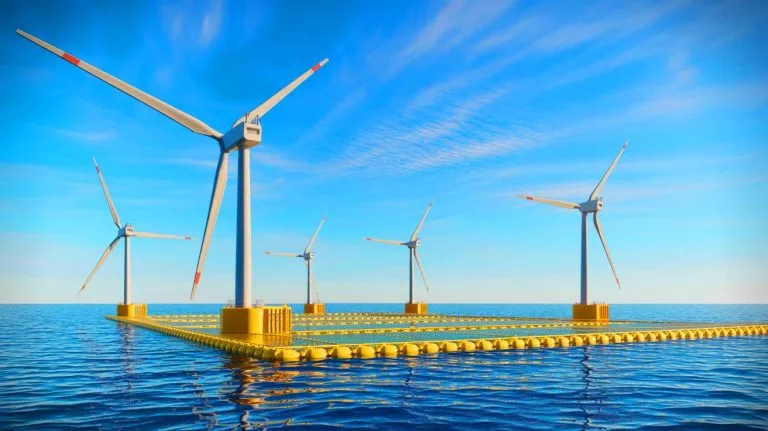| IN A NUTSHELL |
|
In a significant step forward for renewable energy, Ocean Winds has successfully completed the installation of the first floating wind project in Occitanie, France. This milestone sets a new benchmark for the global floating wind industry, showcasing the industrial maturity and regional collaboration necessary for future developments. The Éoliennes Flottantes du Golfe du Lion (EFGL) project exemplifies the potential of floating offshore wind technology, which enables clean energy generation in deeper waters previously inaccessible. As the world grapples with the urgency of transitioning to renewable energy sources, the EFGL project stands as a beacon of innovation and sustainability.
Floating Turbines: A New Frontier
The EFGL project features three 10 MW turbines installed on floating foundations, a groundbreaking achievement that highlights the viability of floating offshore wind in deeper waters. These turbines, assembled at Port-La Nouvelle, were towed 10 miles offshore and are now poised to deliver clean energy to approximately 50,000 residents annually. As the final stages of cable and grid connection works commence, the project is expected to contribute significantly to the region’s energy needs.
Ocean Winds’ successful installation of EFGL reaffirms its leadership in the floating offshore wind sector, building on the experience gained from the WindFloat Atlantic project in Portugal. The achievement paves the way for larger developments, such as the upcoming 250 MW Eoliennes Flottantes d’Occitanie (EFLO) project. According to Jérémy de Barbarin, EFGL Project Director, the project is a collective achievement involving local partners and global innovators, setting a precedent for future floating wind initiatives.
Nature-Inclusive Innovation
Beyond its engineering feats, the EFGL project is also celebrated as the world’s first nature-inclusive floating wind farm. To enhance marine biodiversity, artificial habitats known as Biohuts have been installed at sea. This innovative approach demonstrates a commitment to environmental responsibility, aligning with global efforts to balance renewable energy development with ecological preservation.
Such advancements position the EFGL project as a leader in setting new standards for offshore wind development. The project’s success not only underscores the technical readiness of floating wind but also its potential to scale both in France and internationally. By integrating ecological considerations into its design, EFGL is taking a holistic approach to renewable energy, which could serve as a model for future projects globally.
Impact on Local Communities
The development of the EFGL project has far-reaching implications for local communities, creating job opportunities and fostering regional dynamism. Ocean Winds has emphasized the project’s role in revitalizing the local economy, contributing to a shared sense of pride among residents. The collaboration between international companies and local partners has been instrumental in overcoming challenges and realizing the project’s vision.
As the demand for clean energy continues to rise, projects like EFGL demonstrate how renewable energy initiatives can drive economic growth while addressing environmental concerns. The project’s success story is a testament to the potential of renewable energy to transform communities, offering a blueprint for sustainable development in other regions.
Charting the Course for the Future
The EFGL project represents a critical step in the global transition towards renewable energy. By proving the feasibility and benefits of floating offshore wind, Ocean Winds is charting a course for the industry’s future. The project’s success highlights the importance of technological innovation, regional cooperation, and environmental stewardship in achieving sustainable energy solutions.
As the world seeks to reduce carbon emissions and mitigate climate change, the lessons learned from the EFGL project could inform the development of future offshore wind initiatives. The project embodies the potential for renewable energy to not only meet current demands but also to inspire future innovations in sustainable technology.
As the EFGL project sets new standards for renewable energy, it raises important questions about the future of the global energy landscape. What role will floating offshore wind play in the broader transition to renewable energy, and how can similar projects drive innovation and sustainability worldwide?
Did you like it? 4.4/5 (23)








Wow, floating wind turbines! What’s next, flying solar panels? 🚁
Wow, floating wind turbines! That’s some next-level engineering. Can’t wait to see how this impacts renewable energy worldwide! 🌍